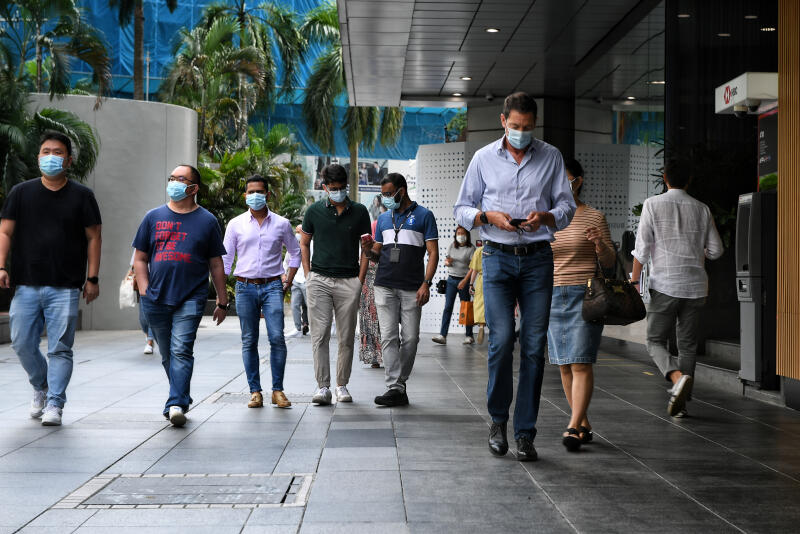Foreign-to-local skills transfer scheme hits Covid-19 roadblock
Sign up now: Get ST's newsletters delivered to your inbox

The Government expects more enquiries and applications for the CTP, which will run till September 2024.
ST PHOTO: KUA CHEE SIONG
Justin Ong
Follow topic:
SINGAPORE - A Government scheme supporting foreign-to-local skills transfer has hit a roadblock with travel curbs causing minimal take-up amid the Covid-19 pandemic.
Since the inception of the Capability Transfer Programme (CTP) in October 2017, more than 140 companies and over 990 locals across more than 20 sectors have benefited or are expected to benefit from it, said Manpower Minister Tan See Leng in Parliament on Tuesday (April 5).
This means that just 20 more locals gained from the initiative last year. Deputy Prime Minister Heng Swee Keat said in his Budget Speech in February last year that as at the end of 2020, more than 140 companies and over 970 Singaporeans and permanent residents have benefited, or are expected to benefit from the programme.
Dr Tan said: "During Covid-19, because of border restrictions, the number of companies applying for this particular programme - to allow either their employees to go overseas for training or to bring foreign expertise here - has been significantly curtailed, and hence that sort of speaks for the very low take-up rate over the last two years."
But with border controls easing and international travel gradually resuming, the Government expects more enquiries and applications for the CTP, which will run till September 2024, said the minister, in response to questions from Nominated MP Abdul Samad Abdul Wahab, MP Saktiandi Supaat (Bishan Toa-Payoh GRC) and Leader of the Opposition Pritam Singh.
The CTP provides up to 90 per cent funding - capped at $300,000 - for company or industry projects to bring in foreign specialists to train locals or send local workers for overseas training attachments, in areas where Singaporeans lacks expertise.
The Manpower Ministry (MOM) said at last year's Budget debate that about $5 million had been committed to the CTP then.
At the same Budget debate, Mr Singh, the Workers' Party chief, had asked whether there are plans to increase the "relatively small number" of Singaporeans benefiting from the scheme.
"My view is it can be an important conduit through which locals upskill effectively with new skills that have a direct knock-on effect on their companies and of course on enterprise in general," Mr Singh said on Tuesday.
Dr Tan said that, to qualify for funding, companies need to submit training plans on the new capabilities to be acquired and the number of local employees who will be trained.
He gave the example of a CTP project by utility company SP Services, which sent 12 local employees to the United States to learn about advanced network design and optimisation. These employees then trained 13 other local colleagues and the team is now able to perform more advanced tasks that previously could be done only by contractors.
During the debate on Tuesday, Mr Saktiandi suggested imposing further conditions on CTP funding, such as requiring companies applying to the scheme to reduce their foreign workforce after completing a project.
Dr Tan rejected the suggestion as being "too blunt".
"Such conditions would penalise companies that are transferring expertise to locals but at the same time still need to grow their overall workforce, both locals and foreigners, to meet growing demand," he said.
He emphasised that the CTP was a complement to other schemes supporting the development of local employees and capability transfers in firms, such as Enterprise Singapore's Global Ready Talent Programme and MOM's Global Rotation Scheme.
Macro employment data reflects how skills transfers have taken place, said Dr Tan, noting how professional, manager, executive and technician jobs now make up 62.1 per cent of resident workers, compared with 52.7 per cent in 2011.
Real median income of full-time resident workers also grew an average of 2.6 per cent per year from 2011 to last year.

